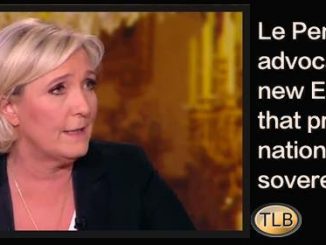
Secret EU law making takes over Brussels
NIKOLAJ NIELSEN
Secret EU law making reached a high in 2016 that has only been matched once before, according to figures obtained by EUobserver.
The normal process starts with a bill from the European Commission. The bill is then channelled through the European Parliament and the Council of the EU, representing member states.

If no agreement is reached at first reading, a second reading is launched. But according to figures provided by the parliament, not a single bill ended up in a second reading agreement in 2016, only the second time this has happened since EU parliament record keeping began in 2004.
“That is quite astonishing, but it is just a continuation of a trend that we have been seeing for quite a while now,” said Vicky Marissen of Pact European Affairs, a Brussels-based consultancy specialising in EU decision-making procedures.
Second readings are important because they open up the debate to the public at large. Removing this phase means the details are being agreed behind closed doors and people have to rely on insider information to understand what is happening.
Well-connected lobbyists or specialised reporters may be able to follow the law-making process, but most people will struggle to make sense of why or how decisions were made. MEPs may debate the bill at the committee level, but the real decisions remain broadly out of sight.
In 2004, over half of all the bills went to a second reading. This dropped to zero for the first time in 2014, then to four in 2015, and then again to zero in 2016.
“We have the short-cutting of the democratic process, almost going to an extreme now,” said Jorgo Riss, director of the Brussels office of Greenpeace, an environmental pressure group.
Riss said the second reading is “where the issue can get outside of Brussels, so into the papers, on to the radio, across Europe, that is where a lot more citizens can hear about it and can get engaged with it.”
“If you are not pursuing public interest, if you are pursuing more private interest, then the system works I guess much better for you,” he added.
The trilogue
Rather than the lengthy and more transparent process, many bills are passed at first reading after closed-door negotiations between small groups of MEPs and national diplomats with an EU commission official as mediator.
People who defend trilogues – as those meetings are known – argue it is an efficient way to move forward on often complex laws.
“From the different parties you have the drive to really come to a decision and trilogues really facilitate that and that is also the reason why there is no real reason to move away from that,” said Marissen.
A lot of it is political. Rotating six month EU presidencies want priority legislation under their watch completed before the next presidency takes over. The EU commission, as any given bill’s progenitor, is also keen to get it passed quickly.
If they agree on a text at trilogues, the bill can be adopted at the first reading. If they do not, then it goes onto a second reading.
The rise of the trilogues means those second readings are becoming increasingly obsolete.
Around 144 trilogue meetings took place last year alone, with 47 files adopted at first reading. In 2015, some 230 trilogues were held, with 46 files adopted at first reading.
None ended up in conciliation, a structure that aims to break impasses between the institutions.
The number of trilogues in a given year often depends on the complexity of a specific proposal. Some of the trilogues in 2015 were also likely a legacy of the bills issued under Jose Manual Barroso before he left as commission president in 2014.
Political pressure
For the few who have had to discuss the fine print and technical details until the early hours, the experience can be draining. It is also an opportunity for officials to exert political pressure, if needed.
Julian King, the EU commissioner for security, reportedly made an appearance at the final trilogue on the EU firearms directive reform in early December. His intervention lasted until around 3am, according to one person present at the meeting.
The discussions often revolve around a four-column internal document that outlines the positions of each side as well as a proposed compromise.
The firearms paper, seen by this website, is 85 pages long. Some are much longer and are prized possessions for well-connected lobbyists who seek to exert influence.
The talks also narrow down the more complex issues surrounding secondary legislation, a technical but politically charged area of law making.
Depending on what is agreed, secondary legislation may give the EU commission an open door to tweak the text long after its adoption.
Malcolm Harbour, a former conservative MEP from the UK, has had extensive experience chairing such meetings.
By his own account, he says he probably chaired more trilogue meetings than any other MEP during his 15 years at the assembly that ended with his retirement in 2014.
“When I started in the parliament in 1999, if you look at the figures, my first five years in the parliament, probably half the dossiers I worked on went through the second reading agreements,” he told this website earlier this month.
He said the shift towards reaching quick agreements started in 2004 with the accession of 10 new member states.
“There have been quite a number of members of the European Parliament, including myself, who are rather alarmed by this trend,” he said.
ER recommends other articles by EUobserver
About the author
Nikolaj Nielsen is a staff writer at EUobserver
 Find out about our great (WOW) TLB Project Membership package and benefits, add your voice and help us to change the world!
Find out about our great (WOW) TLB Project Membership package and benefits, add your voice and help us to change the world!




